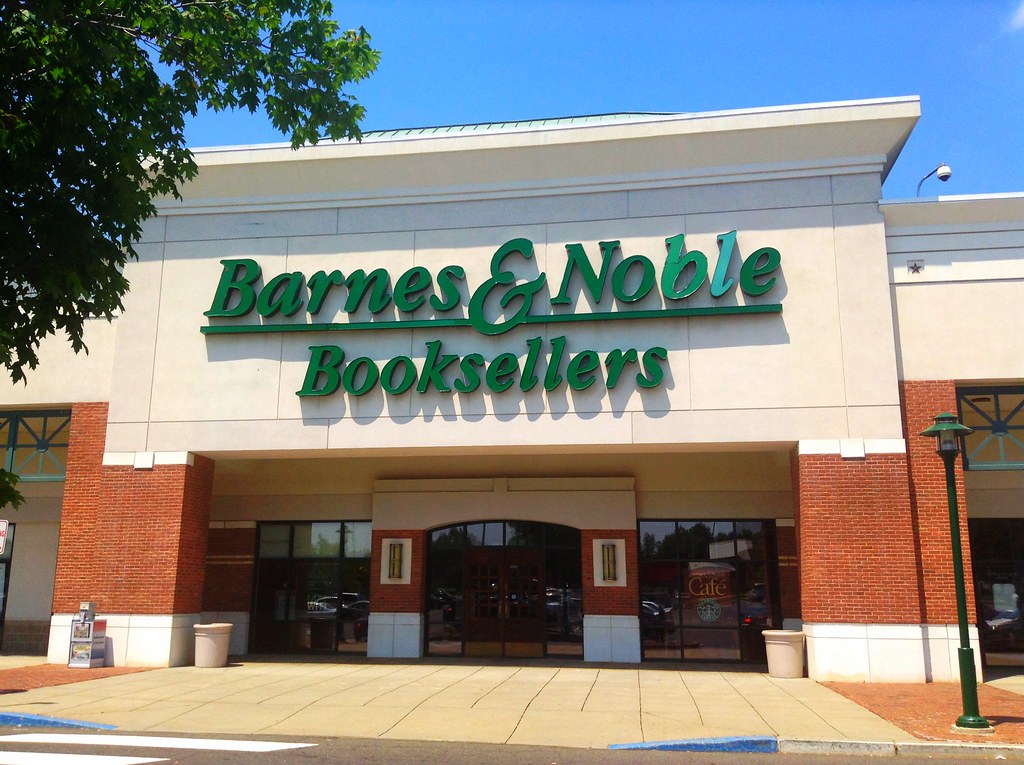While retailers like Barnes & Noble may provide a comfortable and convenient atmosphere for shoppers, the increase of big-box bookstores threatens to privatize the social and intellectual experience found at local public libraries.
Public libraries are a foundational pillar of community. For free, anyone can walk in, scour rows of bookcases, connect to Wi-Fi, access a computer or attend community workshops, then walk out, mind and arms full without spending a dime.
Library cards are free, magical pieces of plastic that transform public property — all those books, DVDs, CDs and other forms of media that fill the shelves and databases — into private goods, free to accompany you anywhere for the duration of your ever-extendable lending period.
Sure, there’s that common argument that libraries, and other public institutions and their goods and services, aren’t free per se, since the funding comes from taxpayers and generous donors. But that’s exactly the point; why not use the books you’ve already paid for? Why pay $30 for a fancy hardcover of that Colleen Hoover novel you’ve been recommended when you already own the copies collecting dust at the library?
Maybe you plan to read your new book endlessly, or are too destructive to be trusted with public materials. Maybe you plan to let the book lie decoratively on your coffee table, where it eventually becomes a coaster, or on your bookshelf, where it becomes a reliable refuge for all of the dust particles floating through your home. Maybe you are just too good to be the second or third or five-hundredth pair of eyes that glaze over the lines and pages.
Maybe you have become so accustomed to the abundance of cozy and expansive Barnes & Noble bookstores that you forgot how to find joy outside of commercial spaces.
It’s not necessarily the public’s fault that libraries get overshadowed by retailers. After all, these companies have hefty budgets and personnel dedicated entirely to advertising and marketing. As US public institutions continue to adapt to dwindling federal funding and warping societal values, Americans themselves have hardly suppressed their consumerist habits.
While the internet may seem like an obvious opponent to all lenders and vendors of physical literature, print book sales actually rose between 2023 and 2024, which many journalists link to the rise of social media communities like BookTok and younger generations’ search for third spaces, or social hubs outside of home and school or work.
For popular bookseller Barnes & Noble, literature trends on social media have been a lucrative opportunity to bring customers back into brick-and-mortar stores after the fog of the COVID-19 pandemic finally began to clear. The bookstore chain opened 57 new stores in the US in 2024, and plans to open at least 57 more in 2025.
“Our stores have become popular social spots, offering an experience that online shopping simply can’t match,” one B&N representative said of the rebirth.
Zac Bissonnette, in his article “The Death of the Public Library,” responded to B&N’s claim, writing that this “is the role libraries have historically played– and should still play.”
Today, however, libraries “are becoming less and less to fewer and fewer people,” Bissonnette writes.
While print book sales have been slowly rising in the U.S., libraries have seen their physical collections shrink by 20 percent between 2010 and 2022, largely due to funding cuts and declines in habitual visitors, according to the annual Public Library Survey by the Institute of Museum and Library Services.
For all of Gen Z and Millennials’ longing for third spaces and discontent with ever-rising prices, we seem to be allowing one of the greatest cost-free social and intellectual hubs to be replaced by retailers. Have we forgotten the magic of the library card?
Don’t get me wrong, bookstores aren’t inherently evil entities intended to destroy democracy. In many ways, they are the opposite: a place to explore new stories, ideas and perspectives. But so are the libraries that, once again, we already pay for.
So buy those books you wish to highlight and fill with margin notes and scribbles; buy those rare first-editions from a store piled top to bottom with secondhand gems; buy a book as a gift for a loved one; but don’t pretend that bookshelves and coffee tables full of dusty once-read, or unread, books bought for their pretty covers, or because TikTok said so, don’t constitute as some form of overconsumption.
Before you spend a single cent on a book, see if you can borrow it from a friend or from a library.
Bookstores can replicate the social and intellectual experience of the library, but only for those who can afford it. The last time I checked, Barnes & Noble doesn’t have public computers, and the only way to take physical media home without paying is to risk a shoplifting charge on your permanent record.
Stores only survive if you spend money before you leave, and libraries only survive if governments perceive their intrinsic societal value and usage as proportionate to or worthy of their public funding.
If you’ve ever complained about the lack of free third places in the United States, or condemned our lack of public infrastructure compared to that of the European country where you studied abroad, it’s time you put away your wallet and instead, put your bookmark where your mouth is.








